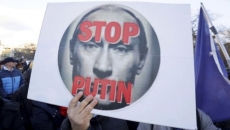VANCOUVER - New provincial family court rules in British Columbia meant to resolve legal matters without going to courthave been called"effective" by the province,but some lawyers and advocates say they don't adequately address the needs of victims of intimate partner violence.
The Early Resolution and Case Management Model, developed by the Ministry of Attorney General and the B.C. provincial court,was launched as a pilot project in Victoria in 2019.
Under the model, those wanting to resolve family law matters, including child or spousal support and parenting agreements, are required to participate in an early resolution process unless there is a valid exception, such as safety issues.
Advocacy groups that help women get out of violent situations caution the mediation process risks repeating the same power imbalances within the partner relationship and they're urging the government not to expand too quickly without analyzing its impact.
A so-called needs assessment is done to decide if dispute resolution is suitable. From there, people can choose to use a mediation or collaborative process, where both parties have representation to help reach an agreement. If issues remain, the parties can then go to court.
"When some or all issues are resolved early by agreement, this reduces the number of cases scheduled for court and allows those cases that do need a trial to be heard sooner," the province said in an assessment report released in January.
After mediation, only 31 per cent of families went to court, with fewer issues, reducing total court time for new cases by 63 per cent, the report said.
The report said "the vast majority felt the needs assessment and consensual dispute resolution were helpful and should be required for people facing family law issues," but it also made 10 recommendations as the model expands to Surrey, including that there be a review of the needs assessment guide and questionnaire.
Angela Marie MacDougal, executive director of Battered Women Support Services, said the needs assessment does not sufficiently identify psychological abuse.
"There's so much involved with dealing with violence, and I see they're trying to tie it all up nicely in a bow and make it sound like everyone's safe and it's great, but it's not," she said. "In too many ways there is a desire to overlook violence, quite frankly, and the family justice counsellors often are not trained sufficiently to do the screening."
The Ministry of Attorney General said in an email the evaluation focused on the "overall implementation" of the model, and safety and family violence will be areas of focus in its review of the model in Surrey, which started in December.
While the needs assessment questionnaire is being reviewed, the ministry said it already asks about violence, including non-physical violence.
"Clients surveyed indicated that they believe that their safety concerns were understood by (Justice Access Centre) staff."
Of the 145 people surveyed, 28 per cent reported the needs assessment was "not helpful" in identifying safety issues, while 59 per cent found it "helpful" and 13 per cent said they "did not know."
Amy FitzGerald, executive director at the BC Society of Transition Houses, wants the province to study the impacts of early conflict resolution on domestic violence victims before expanding the system that relies on it.
“One of our recommendations from Day 1 has been that there really has not been empirical research done in British Columbia, studying alternative dispute resolution and the impact on (people) fleeing violence," she said.
A 2016 report co-authored by FitzGerald identified power imbalances between parties, confusion regarding dispute resolution processes and lack of resources to hire representation or access independent legal advice as key challenges in mediation. The same issues apply today, she said.
"They should be making it work for all folks, and not just rolling it out because it reduced the backlog of cases."
Experts disagree on the best approach of conflict resolution in cases that involved abuse. Nancy Cameron, a collaborative family law lawyer, said for most of the cases, going to court will not give these families a better resolution.
“If people need advocacy support in the room or if there's a power imbalance, I will usually recommend collaborative process, but sometimes they need the court's coercive power, and the courts have tremendous coercive power," Cameron said.
FitzGerald said years of funding cuts to B.C. legal aid havemade it harder for women fleeing abusive relationships to get help from lawyers.
The attorney general's statement said a needs assessor will offer referrals and point people to existing resources.
The provincial government announced this month it was investing another $8.19 million for legal aid as part of its 2022 budget. It said some of the money will go to support families navigating the court system, but it didn't have a breakdown of the funding.
River Shannon, a staff lawyer for the YWCA of Metro Vancouver, said the funding is welcome, but until it is clear where it will be allocated, it's hard to quantify the impact for people leaving abusive relationships.
If the priority is getting more people through the system, rather than providing meaningful justice, survivors will be overlooked, so groups are "anxious to collaborate" with the province, Shannon said.
"A system that does not provide meaningful healing and safety to the most marginalized people is not a justice system."






